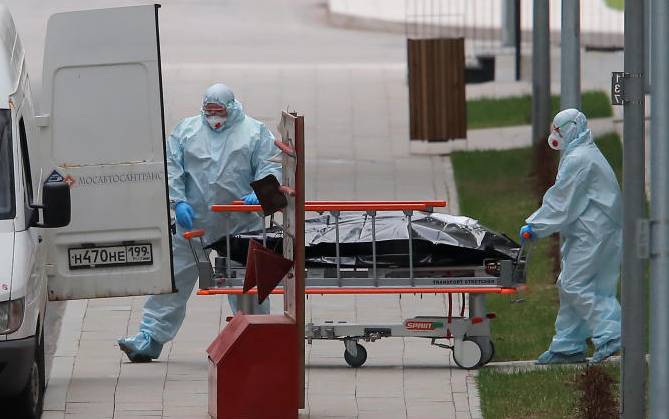×
The Standard e-Paper
Kenya’s Boldest Voice

Medical specialists wearing protective gear push a stretcher towards an ambulance while relocating a non-transparent bag, which presumably contains a human body, outside a hospital for patients infected with the coronavirus disease (COVID-19) on the outskirts of Moscow, Russia April 20, 2020. [REUTERS/Maxim Shemetov]
It is possible for one to contract coronavirus from the body of a person who has died from Covid-19, a pathologist has said.